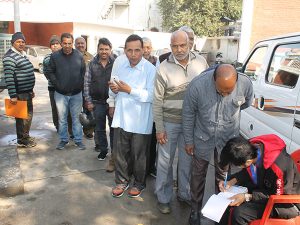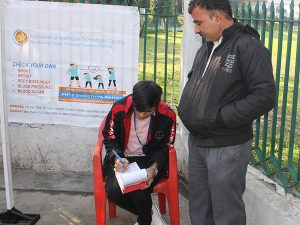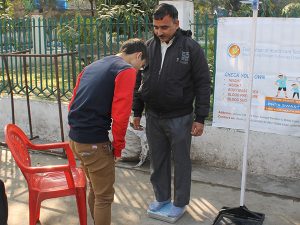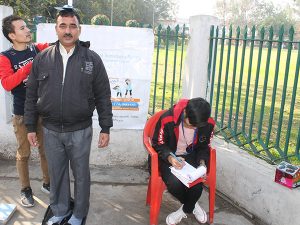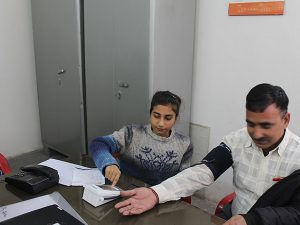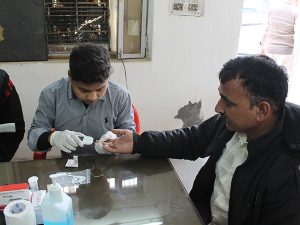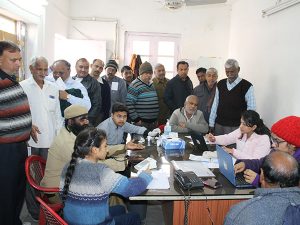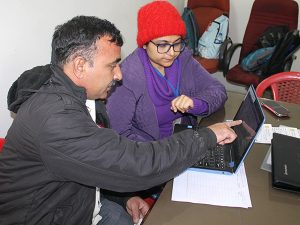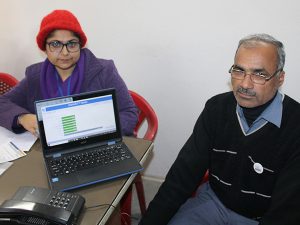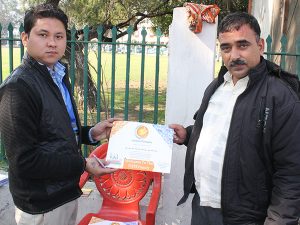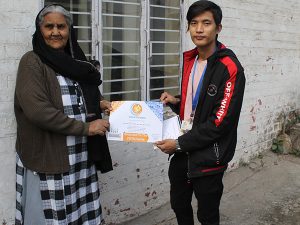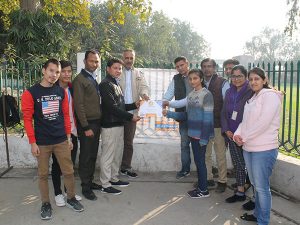| Location | DMS, Shadipur, New Delhi |
| Dates | January 29, 2020 (11:00 am) - January 29, 2020 (3:45 pm) |
| Total Beneficiaries | 90 |
| Female Beneficiaries | 3 |
Conclusion
A total of 90 beneficiaries attended the Swasthya Pahal camp organised on 29th January 2020 at DMS, Shadipur, New Delhi. Nearly three fourths of the beneficiaries (71.1%) had hypertension (i.e. blood pressure >120mm/Hg) while more than one third of the beneficiaries (37.7%) had high random blood sugar (> 140mg/dL). More than half of the beneficiaries (60%) were overweight/obese (i.e. Body Mass Index > 24.9 kg/m2) and same number of beneficiaries (60%) were engaged in regular physical activity (i.e. at least 4 times in a week). Some of the beneficiaries reported lack of time as the main barrier for not being able to exercise regularly.
One third of the beneficiaries consumed alcohol (31.1%) and while more than one third of the beneficiaries smoked bidhi or cigarette (35.5%), though the quantity and frequency of smoking and drinking alcohol varied widely among the beneficiaries. All the beneficiaries found the swasthya pahal initiative useful and very helpful.
Comments
- In today’s Swasthya Pahal camp, beneficiaries were receptive to the counselling.
- They found it very useful and gave us comments such as “very good, excellent behavior.
- It was observed that almost all beneficiaries think it was okay for hypertensive person to eat only sendha namak as they did not know that sendha namak is not fortified with Iodine.
- Most of beneficiaries were in the contemplative stage for adopting healthy behaviors and some of them were also in the action stage.
- There was a misconception among most of the beneficiaries that jaggery is not harmful for a diabetic patient and its consumption should not be restricted.
Another misconception was about iodized salt. In their opinion, iodine is not good for health and therefore fortified salt should not be consumed.
In addition, objective data gathered includes height, weight, blood pressure, and blood sugar. An evidence based decision rule engine then generates a SMAART™ health card for each individual. Based on the individual risk findings, the system provides an individualized lifestyle feedback supported by trained lifestyle counselling experts.


